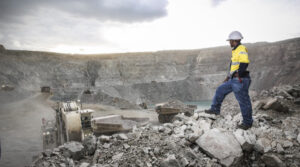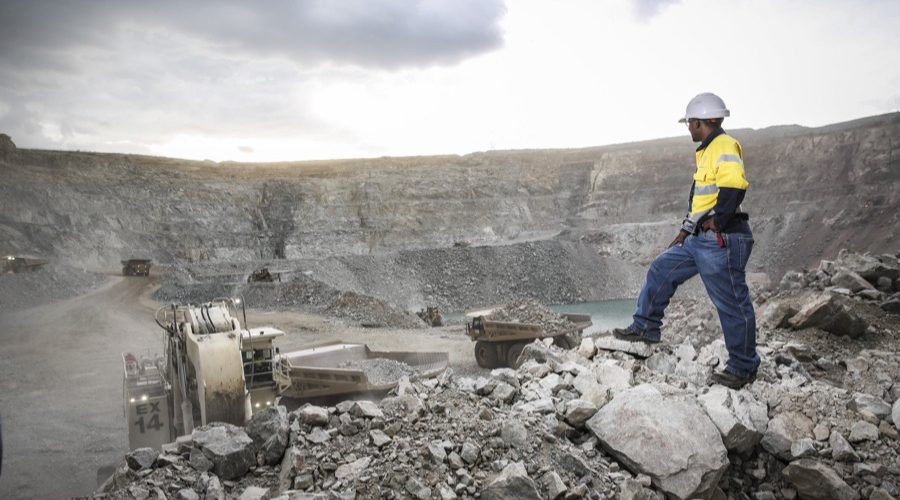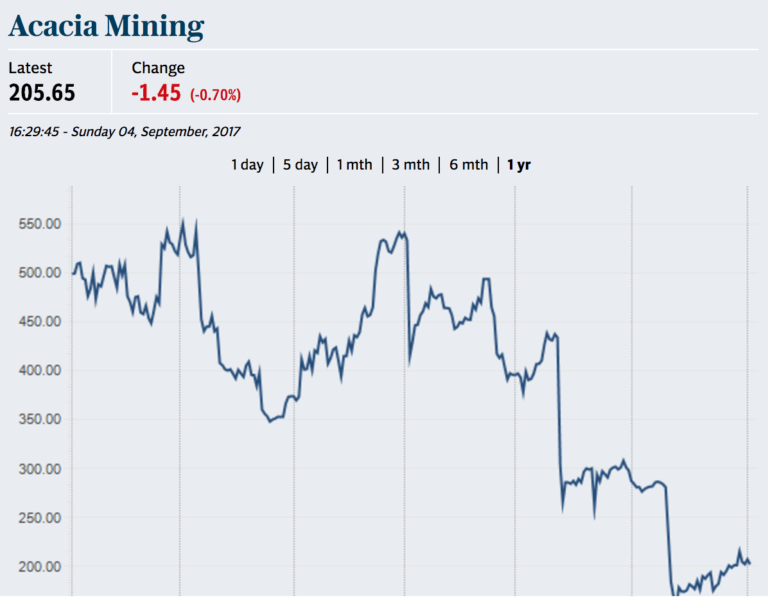Acacia Mining (LON:ACA), Tanzania’s No.1 gold producer, announced Monday that it will reduce operational activity at its Bulyanhulu Gold Mine.

“The decision was driven by unsustainable cash outflows at the mine due to the concentrate ban and the operating environment,” officials said in a statement.
Acacia is in the midst of a bitter dispute with the Eastern African country’s government, whose mining authorities imposed a ban on exports of unprocessed ore to encourage the construction of a local smelter. The move, which took place in early March, prompted a collapse of the London-listed firm’s stock value.
The ban, the company states, has also left a build-up of ore and a negative cash flow of approximately $15-million per month.
The firm is also said to be struggling to meet taxes and other bills, following John Magufuli administration’s decision to serve it with a $190-billion bill in fines for alleged fraud and illegal operations.
“Acacia has therefore decided to commence a programme to reduce operational activity and expenditure at Bulyanhulu in order to preserve the viability of our business over the longer term. This programme will include the preservation of all assets and equipment to enable the mine to resume ordinary course operations should the export ban be lifted and the operating environment stabilised,” the miner’s release reads.
The escalating conflict pushed world’s largest gold producer Barrick Gold (TSX, NYSE:ABX), which has a 64 per cent stake in Acacia, to intervene in July by mediating in the dispute. Both companies keep promoting a negotiated resolution and said that once such an outcome is reached, the group would quickly return to positive cash generation.
For now, annual production is expected to be 100,000 ounces lower than the bottom of the previous guidance range of 850,000-900,000 ounces.
*As reported here.


